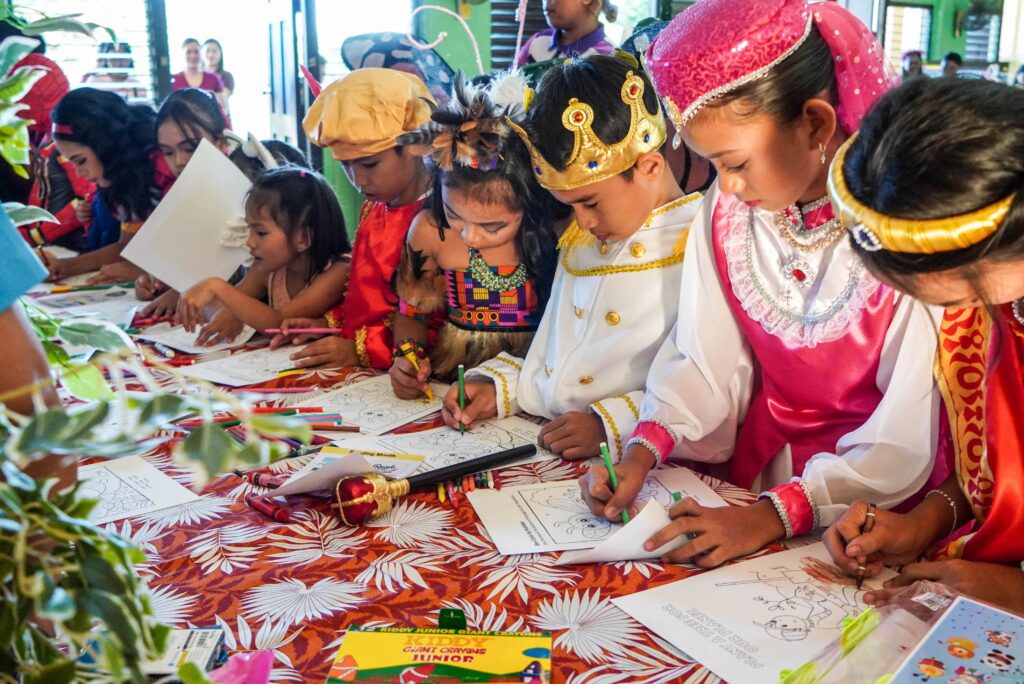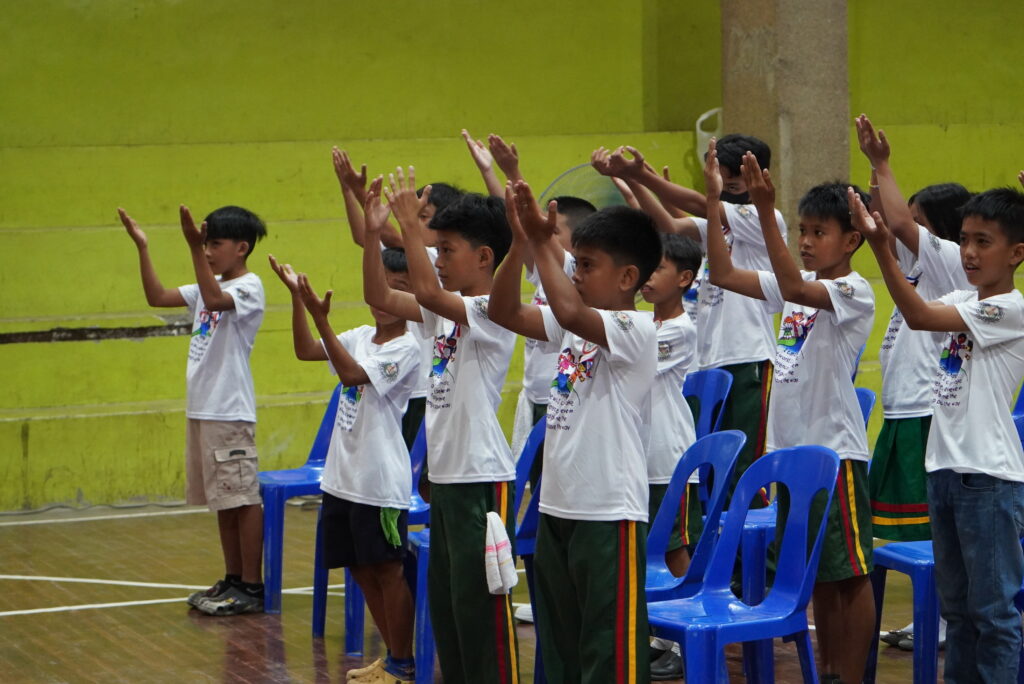
We owe it to our children to believe in them.
The educational journey of learners begins at home and continues in school. Standing as primary believers enabling learners to reach their full potential, parents, and teachers have a huge responsibility to take. Their collaborative efforts are instrumental in shaping not only the academic success of learners but also their personal growth and future opportunities.
In the past years, the importance of the collaboration between teachers and parents to support the learning community has been highlighted. In the 2019 Southeast Asia Primary Learning Metrics study by UNICEF Philippines, it was found that Filipino children exhibited the disparity in test scores between those with highly engaged parents and those with minimally involved parents among the six (6) participating Southeast Asian countries. This highlights the critical role of parental involvement in children’s academic performance. Engaging in activities that strengthen parent-child relationships and boost children’s self-esteem and motivation to learn can significantly improve educational outcomes.
In support of ongoing initiatives to improve learning, the Ramon Aboitiz Foundation Inc., through its Education Development Unit (RAFI EDU) in partnership with AHA Learning Center, introduced the Kita ang Pagbag-o (KAP) Program (We are the Change Program) to 69 schools within the jurisdiction of the Schools Division Office of Cebu City. This holistic learning recovery initiative elevated over 2,000 learners in Cebu City along with their teachers and parents. The KAP Program, which provided remediation sessions for learners, training for teachers, and a support group for parents, was designed to empower all participants to take a step higher. Acknowledging the importance of a nurturing learning environment, the program actively engaged both teachers and parents, ensuring that learners receive the essential support they needed to enhance their literacy and numeracy skills.
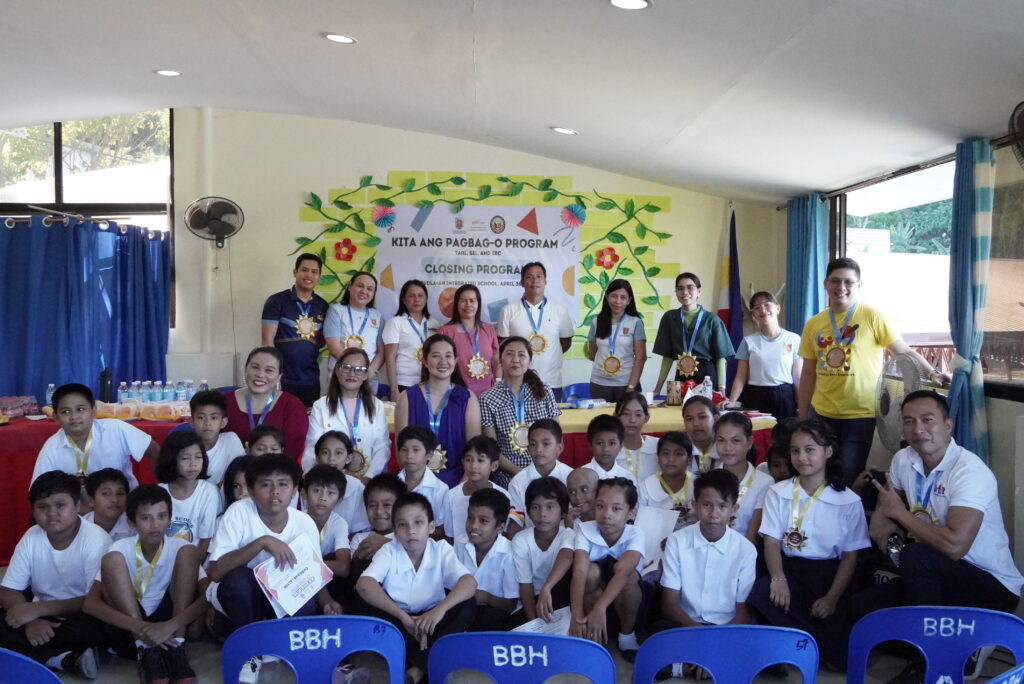
So why should teachers and parents work together? Here’s how RAFI KAP supported not only struggling beginner learners but also their teacher and parents:
The Influence of Parents: First Teachers and Lifelong Supporters
Parents are often referred to as a child’s first teachers. From early childhood, they instill foundational skills and values that shape their children’s attitudes toward learning. As children grow, parental involvement continues to be crucial, whether through homework assistance, attendance at school events, or fostering a conducive learning environment at home.
The KAP Program acknowledges that a child’s greatest supporter and enabler is their parents. One of its components is the parent support club called: Supporta Eskwela Club (SEC) which provides a rich network of support for parents, helping them understand their role in continuing, practicing, and mirroring school activities at home.
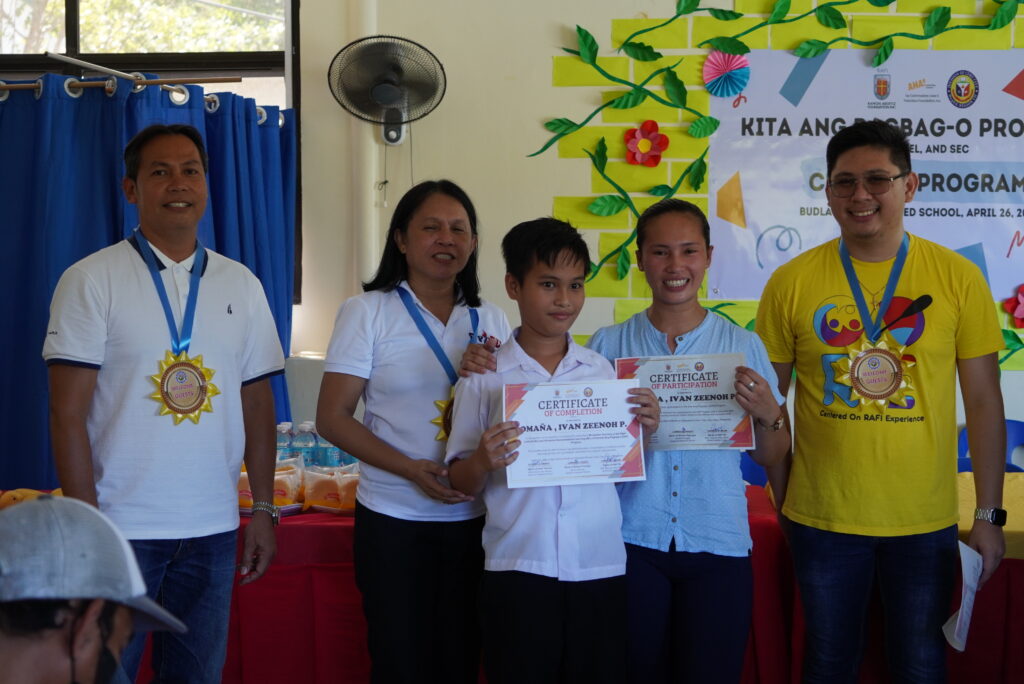
Joeramie Pogoy was emotional in sharing her realizations after joining several SEC sessions. Her greatest realization was that instead of scrolling through Facebook for 2 hours, she could use that to support her child in reading. The SEC sessions made her realize that she has a crucial part of the learning journey of her child.
Joeramie Pogoy became very emotional while sharing her insights after attending several SEC sessions. Her most significant realization was how she lacks time to support her child’s learning. “Naka realize ko as ginikanan na dako ko ug pagkuwang sa akong anak. Kuwang pa gyod kaayo ko ug time. Kay mo duty ko ig abot nako, wala na siya samot na ug night shift ko. Ang akong na-adanan mangutana lang if naay assignment,” Joeramie explained.
The SEC sessions helped her understand that she plays a crucial role in her child’s learning journey. Initially, she was surprised that her child was asked to enroll in remediation classes, but she later became grateful for the opportunity to participate in the sessions.
“Kompyansa ra kaayo ko sa nga tanan. Mama tinuod ko nya nagtrabaho ko. Pagattend nako sa SEC grabi kahuot sa akong dughan. Akong realization grabe gyod naghuna huna ko ug usa ka semana. […] One hour or two hours nga magscroll scroll sa facebook, one paragraph na unta na nga nakabasa akong anak nya mawani ra. Time ra gyod ang kuwang ani. Di gyod lalim nga ma behind ang anak kay basin ma discourage siya sa iyang kaugalingon ba,” Joeramie adds.
Joeramie encouraged her fellow parents to continue to guide and support their children as the journey towards empowered learners truly begins at home.
Learner’s Second Parents: Teachers
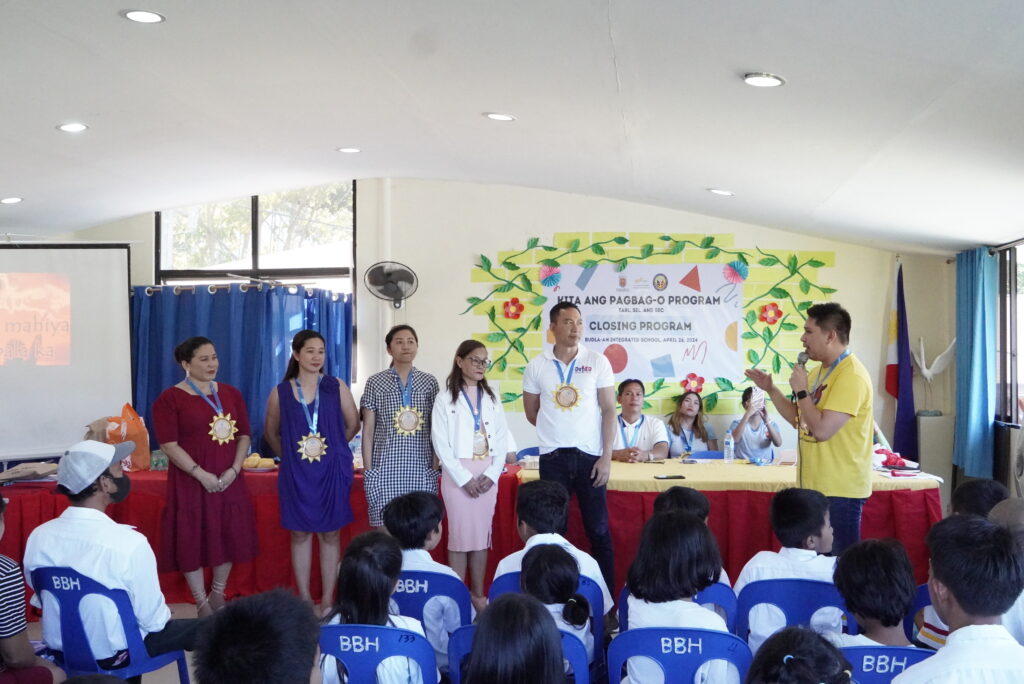
Teachers bring a curriculum to life, making learning an engaging and enriching experience. Standing as the second parents to learners, they create and learn innovative teaching methods and personalized attention to identify and nurture each student’s unique strengths and address their challenges.
Cristine Bolo, a KAP Teacher at Budlaan Elementary School, now feels more empowered with a renewed sense of purpose, realizing the profound impact she can have on a child’s life. With four years of experience teaching Grade 1, she had a basic understanding of how to facilitate remediation classes. However, after completing the KAP program, she confidently states that she now possesses the complete competency required. The KAP Program provided capacity-building support for KAP Teacher Fellows, guiding them in identifying proper, effective, and engaging remediation modules. Recognizing possible teaching strategy gaps, teachers were oriented and trained to effectively implement learning recovery programs.
In her speech during the graduation of the program, “Ang programa, grabe makaencourage sa mga learners nga walay kompyansa sa sarili, di makasabay sa iyang mga classmate but tungod sa program, nagkakompyansa na. Eager na kaayo mo answer. Kung sauna kining mga bataa maglingkod sa pinaka luyo, dili magtingog, tungod sa program, kaya na nila,” Cristine explained.
In her speech during the graduation of the program, “The program greatly encourages learners who lack self-confidence and cannot keep up with their classmates. Because of the program, they have gained confidence. They are now very eager to answer. In the past, these children would sit at the very back and remain silent, but because of the program, they can now participate actively,” Cristine explained.
She cites testimonials from the other KAP implementing schools like: “It started with makapabasa ba kaha ko aning mga bataa? It ended with nakapabasa gyod diay ko nila ug nakat-on gyod sila ug math.” She cites testimonials from the other KAP implementing schools like: “It started with, “Can I really teach these children how to read?” It ended with, “I actually taught them to read, and they also learned math.”
Collaboration
The synergy between teachers and parents significantly enhances a student’s learning experience. When these two enablers work in tandem, they create a support system that addresses both academic and emotional needs. As a learning community, we owe our learners all the support and activities that will enable them to push for the future. Despite the learning crisis, it is through initiatives like these programs and collaborative endeavors that ignite hope, showcasing that every learner possesses the ability to thrive and prepare for the future. With the steadfast support of their educators and parents, learners will be empowered to embark on their educational journey with vigor and determination. Together, these catalysts are shaping a promising future where no learner is left behind.
